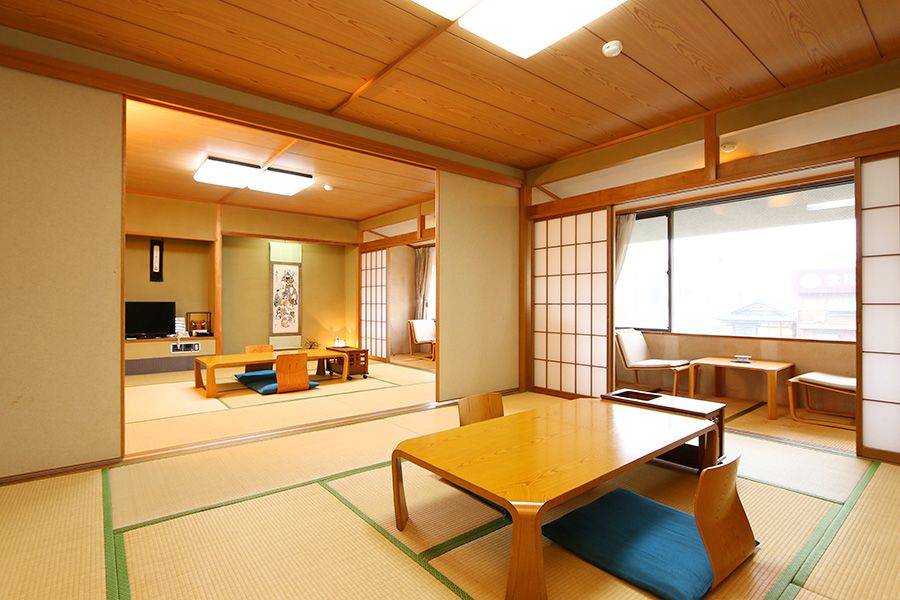Review Zosui (Rice Soup): A Comforting Taste of Japan’s Soulful Cuisine
The Origins of Zosui (Rice Soup) – A Dish Born from Simplicity and Ingenuity
The story of Zosui (rice soup) begins in ancient Japan, where frugality and mindfulness guided daily life. Leftover rice was never wasted but transformed into a flavorful soup enriched with seasonal ingredients. Over centuries, this dish evolved from a simple comfort food into a culinary expression of gratitude, nourishment, and togetherness.
Historical Background and Evolution
During Japan’s Heian and Edo periods, rice was the cornerstone of the Japanese diet. Zosui emerged as a way to extend a meal, ensuring nothing went to waste. With time, families began enhancing the dish with miso, soy sauce, vegetables, seafood, or chicken, turning it into a beloved household favorite. Today, Zosui holds a special place in Japanese cuisine – a dish that warms both the body and the soul.

Symbolism and Cultural Meaning
Beyond its taste, Zosui symbolizes comfort, healing, and renewal. Traditionally served to the sick or after celebrations, it represents care and compassion. Yoshida Hotel notes that Zosui’s enduring popularity lies in its emotional connection – it’s more than food; it’s a gesture of love.
The Essence of Zosui (Rice Soup) – A Balance of Simplicity and Flavor
Zosui captivates diners with its light yet rich taste. The dish is crafted from a simple combination of cooked rice simmered in seasoned broth, often enhanced with ingredients like eggs, mushrooms, or seafood. The result is a soft, velvety texture that soothes and satisfies.
Key Ingredients in Zosui
- Rice: Short-grain Japanese rice provides the perfect texture when simmered.
- Broth (Dashi): Made from kombu (kelp) and bonito flakes, it forms the flavor base.
- Seasonings: Soy sauce, miso, salt, or mirin add depth and umami.
- Additions: Common toppings include green onions, mushrooms, shrimp, tofu, and beaten eggs for added richness.
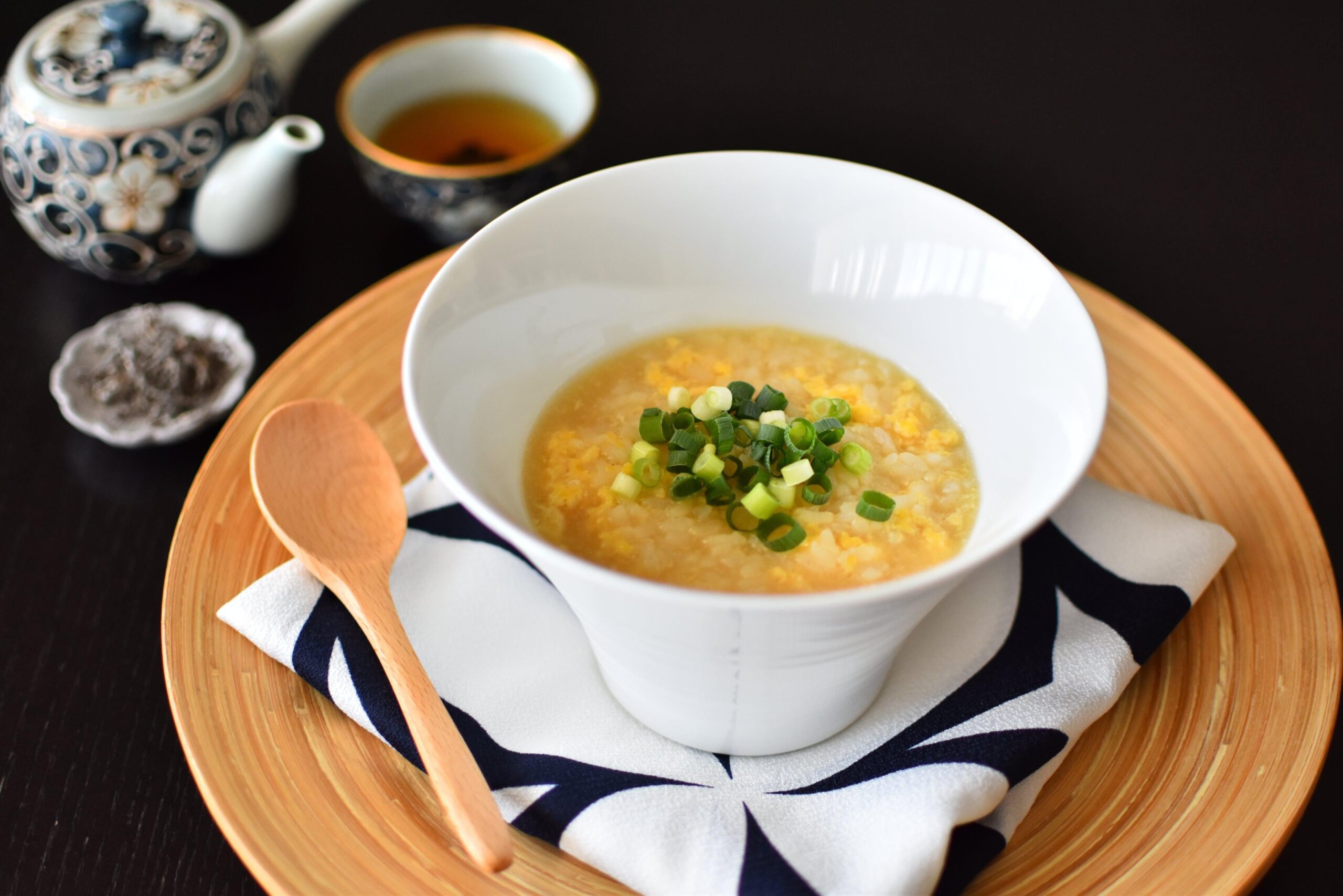
Cooking Technique and Texture
The secret to perfect Zosui lies in gentle simmering. Unlike congee, Zosui retains the individuality of each rice grain while absorbing the broth’s flavor. The consistency is delicate and smooth, offering a comforting warmth in every spoonful.
Regional Variations of Zosui – Exploring Japan’s Culinary Diversity
Kyoto’s Elegant Simplicity
In Kyoto, Zosui (rice soup) is crafted with refined dashi and subtle seasonings. It reflects the city’s culinary philosophy of harmony and restraint, often featuring tofu, yuba, and seasonal vegetables.
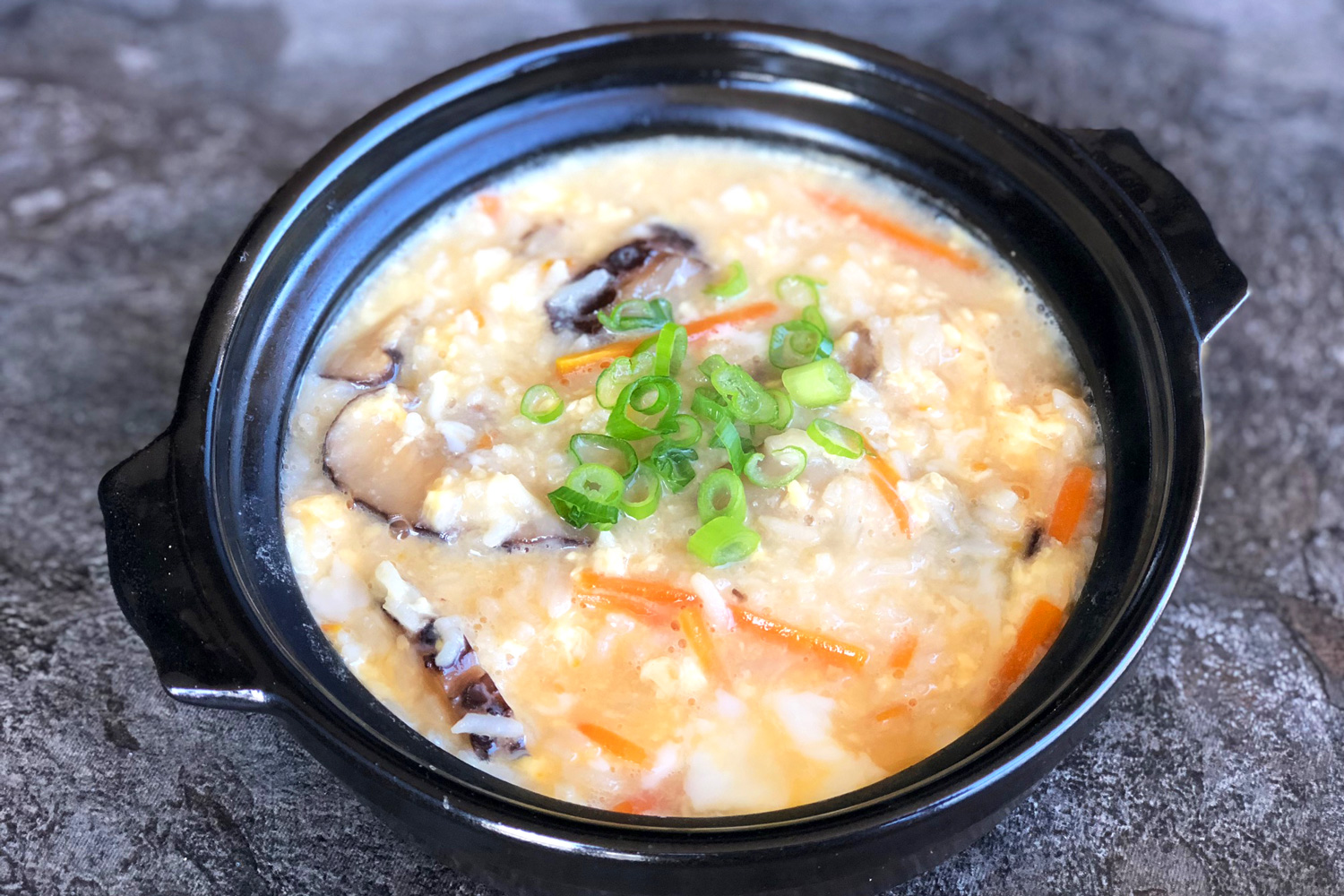
Osaka’s Bold and Hearty Flavor
Osaka’s version is richer, often incorporating seafood and chicken. The broth is savory, and ingredients are simmered longer for a deeper flavor. It represents the Kansai region’s love for robust and comforting meals.
Hokkaido’s Winter Comfort
In the cold north, Hokkaido’s Zosui uses crab, salmon, and local vegetables. The hearty ingredients and rich broth make it a perfect winter dish that embodies the region’s rugged charm.
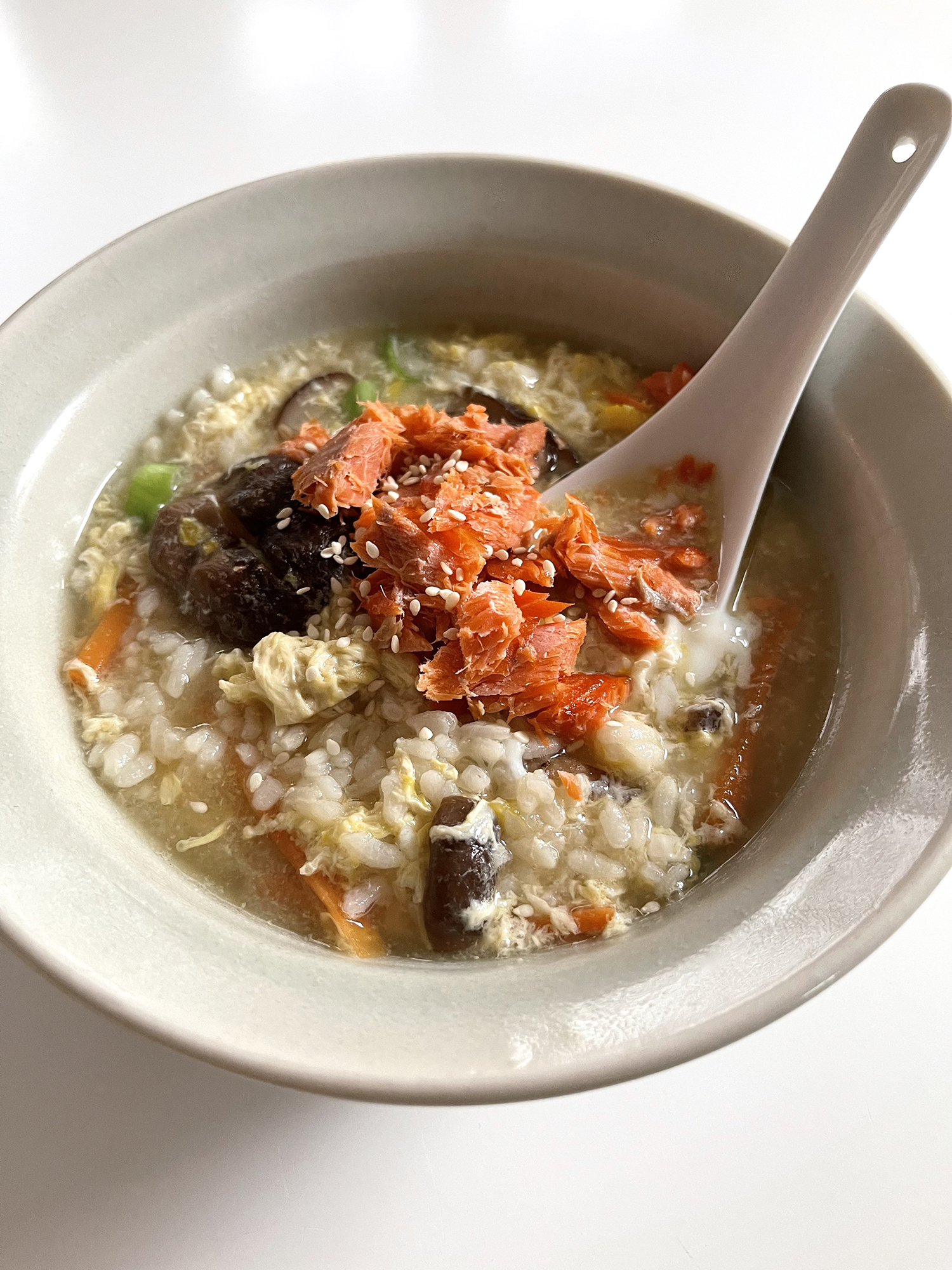
Tokyo’s Modern Interpretation
Tokyo’s contemporary restaurants reinvent Zosui with innovative twists – truffle oil, soy milk bases, or creative plating. It appeals to global palates while honoring the traditional spirit of the dish.
Zosui (Rice Soup) and Japanese Wellness Culture
Healing Through Food
Zosui has long been considered a healing dish. It’s often served during recovery from illness, postpartum care, or after a long day. Its lightness aids digestion, while its warmth brings physical and emotional comfort.
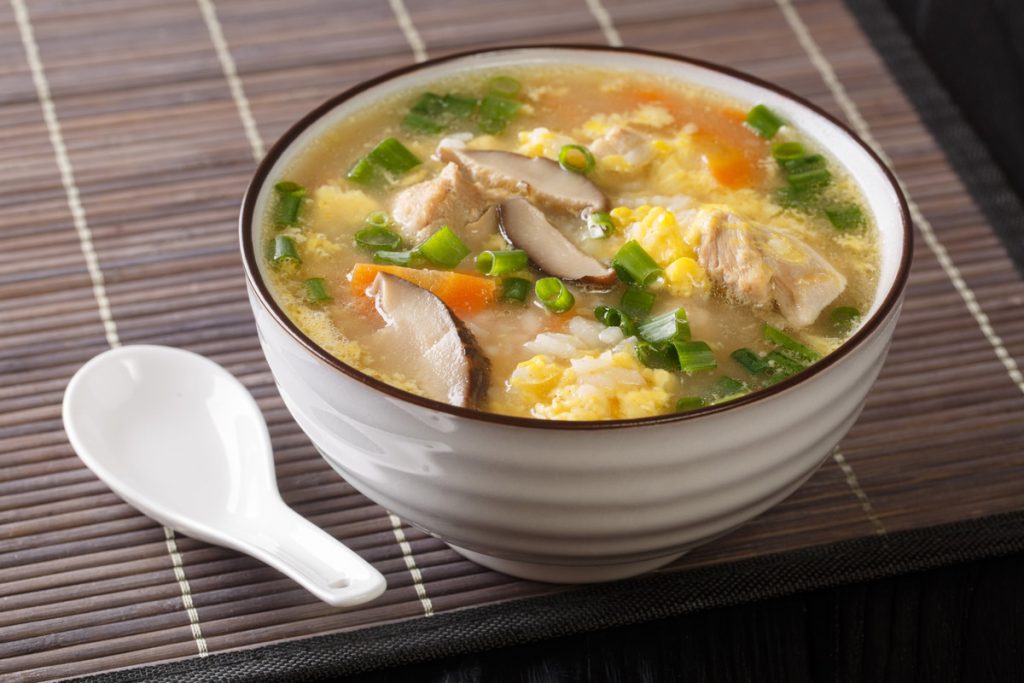
The Role of Umami and Balance
The umami-rich broth of Zosui nourishes the senses and exemplifies Japanese nutritional balance. Yoshida Hotel highlights that the dish aligns with Japan’s philosophy of “shun” – eating ingredients at their seasonal peak for maximum flavor and benefit.
The Art of Making Zosui at Home – A Comfort Dish for All Seasons
Basic Method
To prepare Zosui at home, begin with leftover rice and dashi. Add seasonings, simmer until the broth thickens slightly, then fold in eggs or vegetables. Finish with green onions or yuzu zest for freshness.
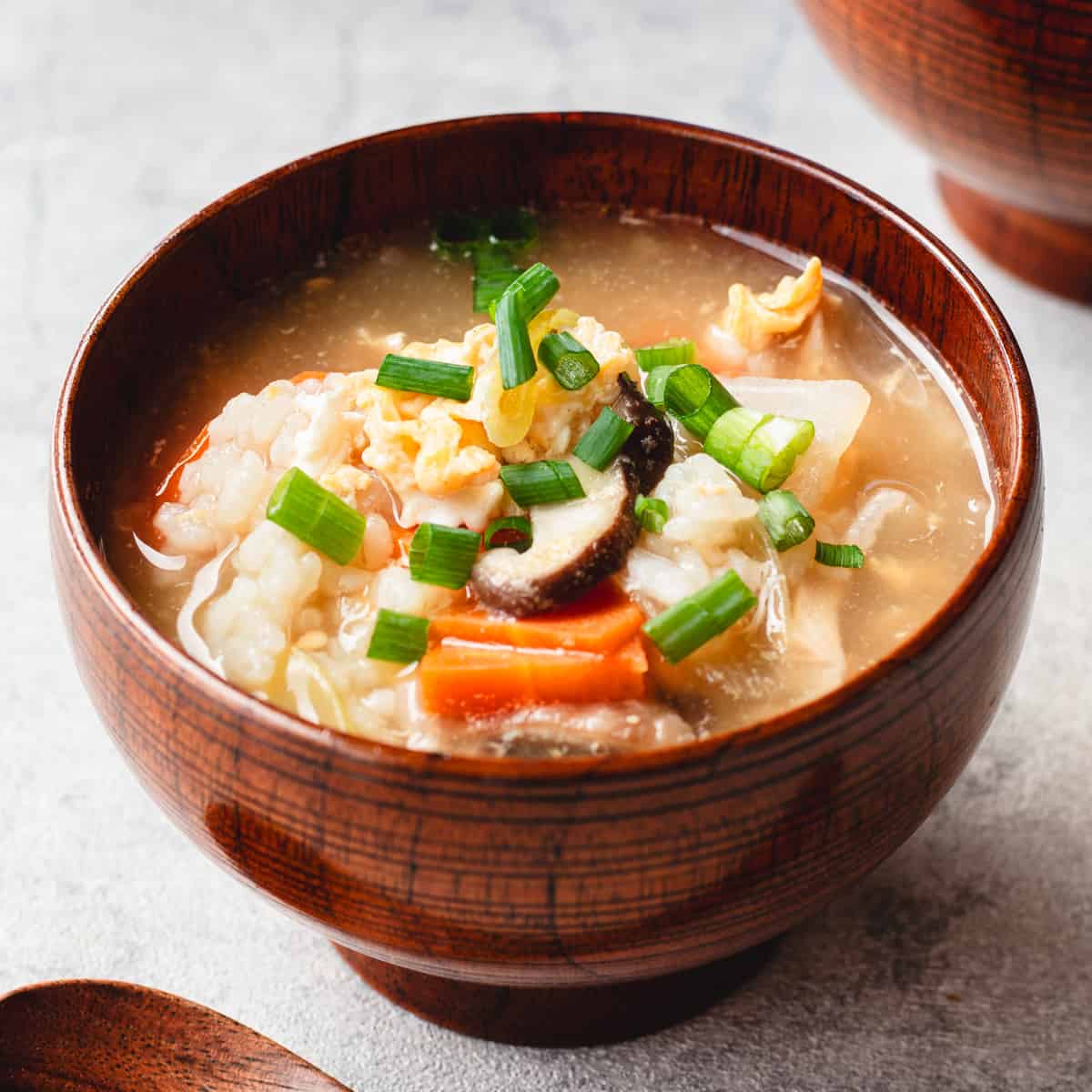
Creative Twists
Modern chefs experiment with variations such as miso-based Zosui, tomato-infused versions, or vegetarian renditions featuring tofu and mushrooms. Each style maintains the dish’s soothing essence while introducing new layers of flavor.
Zosui in Japanese Dining – From Family Tables to Kaiseki Cuisine
Home-Cooked Comfort
At home, Zosui symbolizes care and intimacy. Families often prepare it from leftover hot pot broth, blending warmth and nostalgia. It’s a dish that brings people together, especially during the colder months.
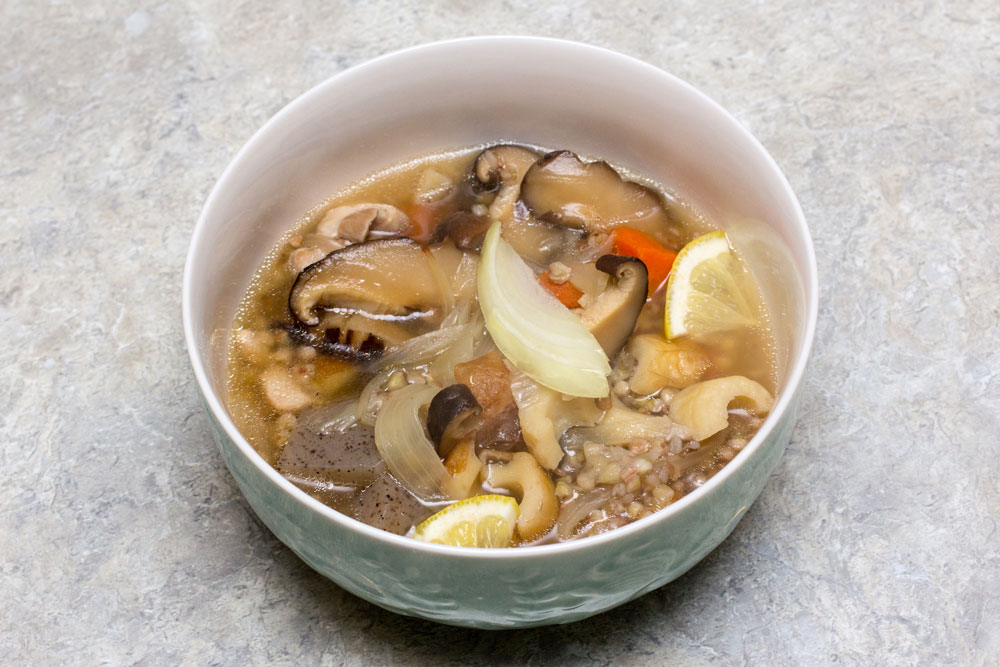
Zosui in Fine Dining
In kaiseki cuisine, Zosui may appear as the final course, offering a gentle conclusion to a multi-course meal. Its understated elegance cleanses the palate and completes the dining experience with serenity.
Pairing Drinks with Zosui (Rice Soup)
Sake – Subtle Harmony
Light sake enhances the umami of the broth, creating a soothing pairing. The smooth texture of both complements the delicate rice grains.
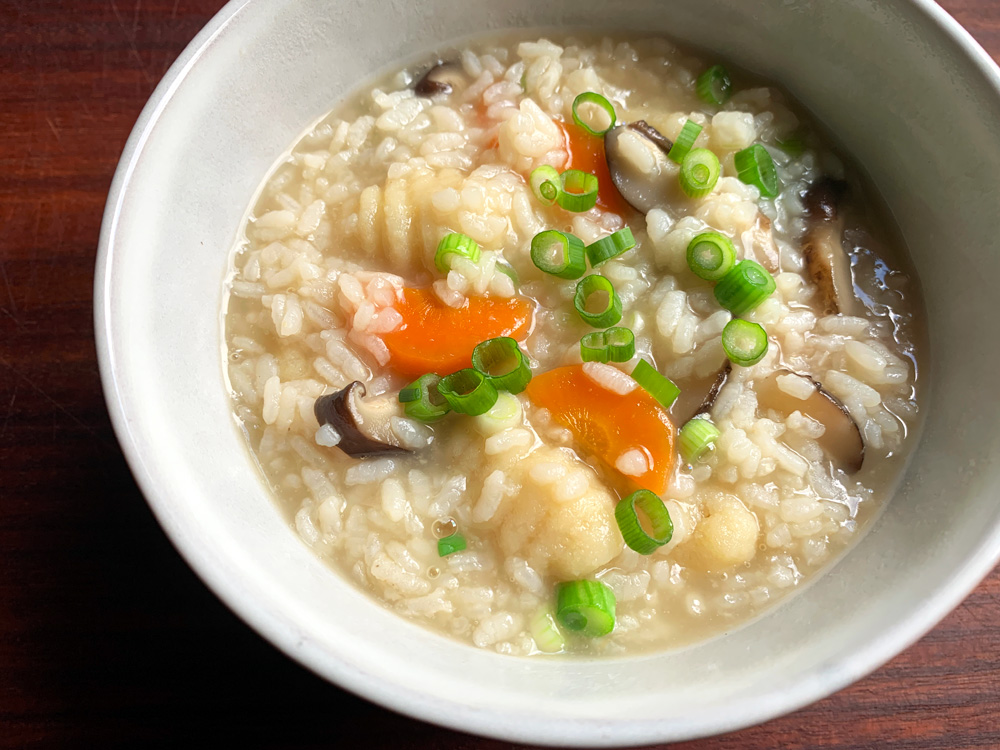
Green Tea and Houjicha
For a non-alcoholic choice, green tea or roasted houjicha provides a refreshing contrast to Zosui’s savory depth. It’s a combination rooted in mindfulness and tradition.
Modern Beverage Pairings
Restaurants today offer innovative pairings, from white wine to light Japanese beer, balancing Zosui’s warmth with gentle acidity or crisp refreshment.
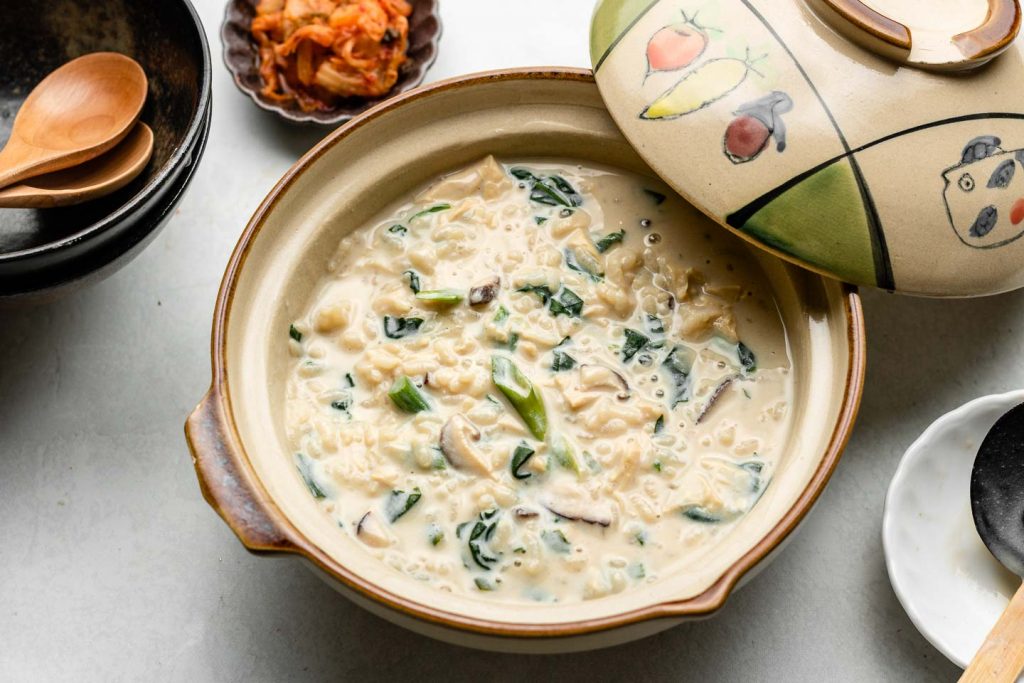
Zosui (Rice Soup) in Japanese Culture and Daily Life
A Dish for Every Generation
From children to elders, everyone in Japan enjoys Zosui. Its digestibility and comforting warmth make it a favorite across ages, symbolizing the continuity of Japanese family traditions.
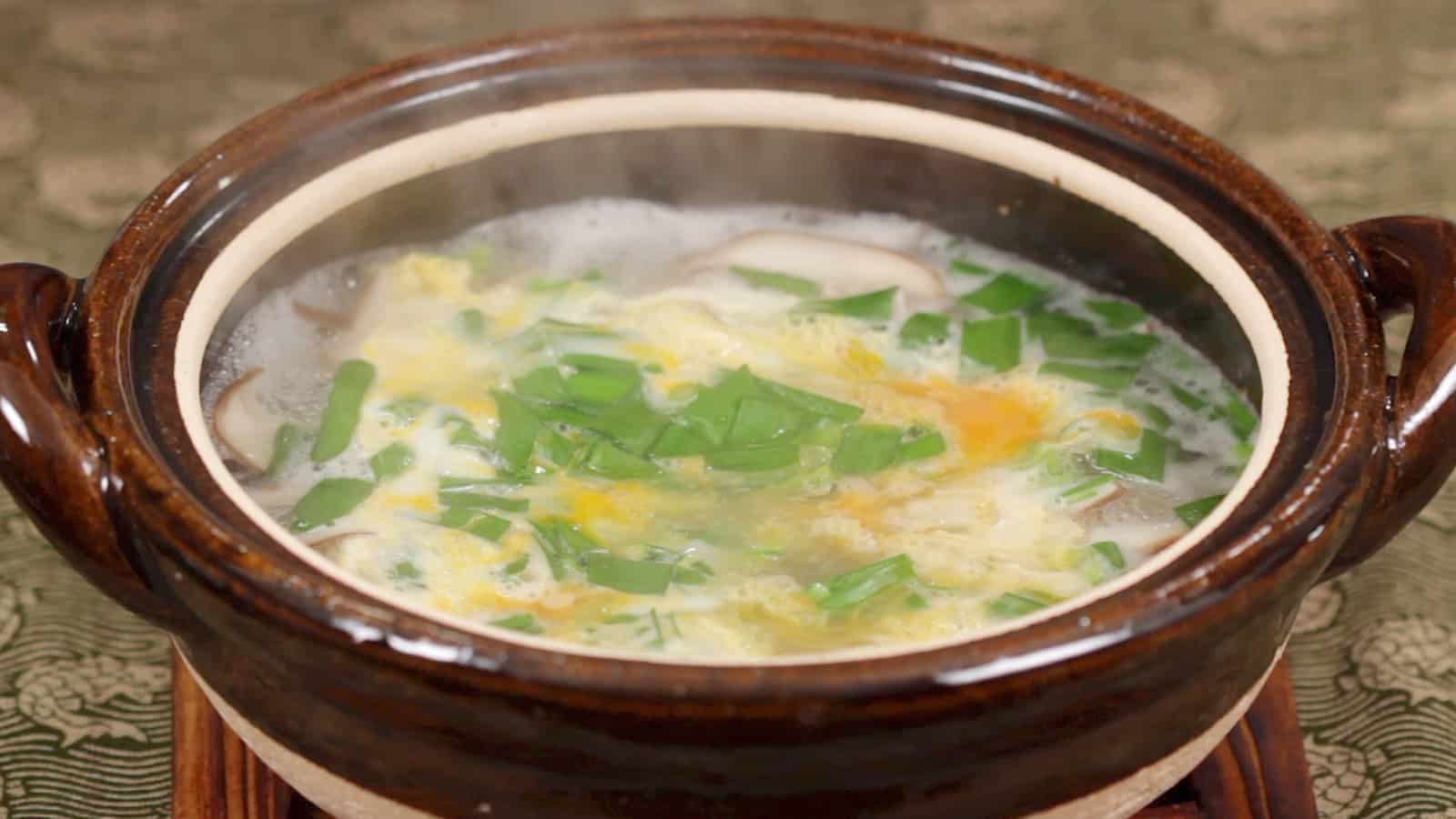
Seasonal Celebrations
Zosui often graces the table during New Year’s celebrations or after festive banquets, offering calm and closure. It serves as a reminder to slow down and savor life’s simple pleasures.
Health Benefits of Zosui (Rice Soup)
Nourishment and Hydration
Zosui’s broth provides hydration and nutrients, while rice offers energy. The combination supports recovery and wellness, especially during colder months.
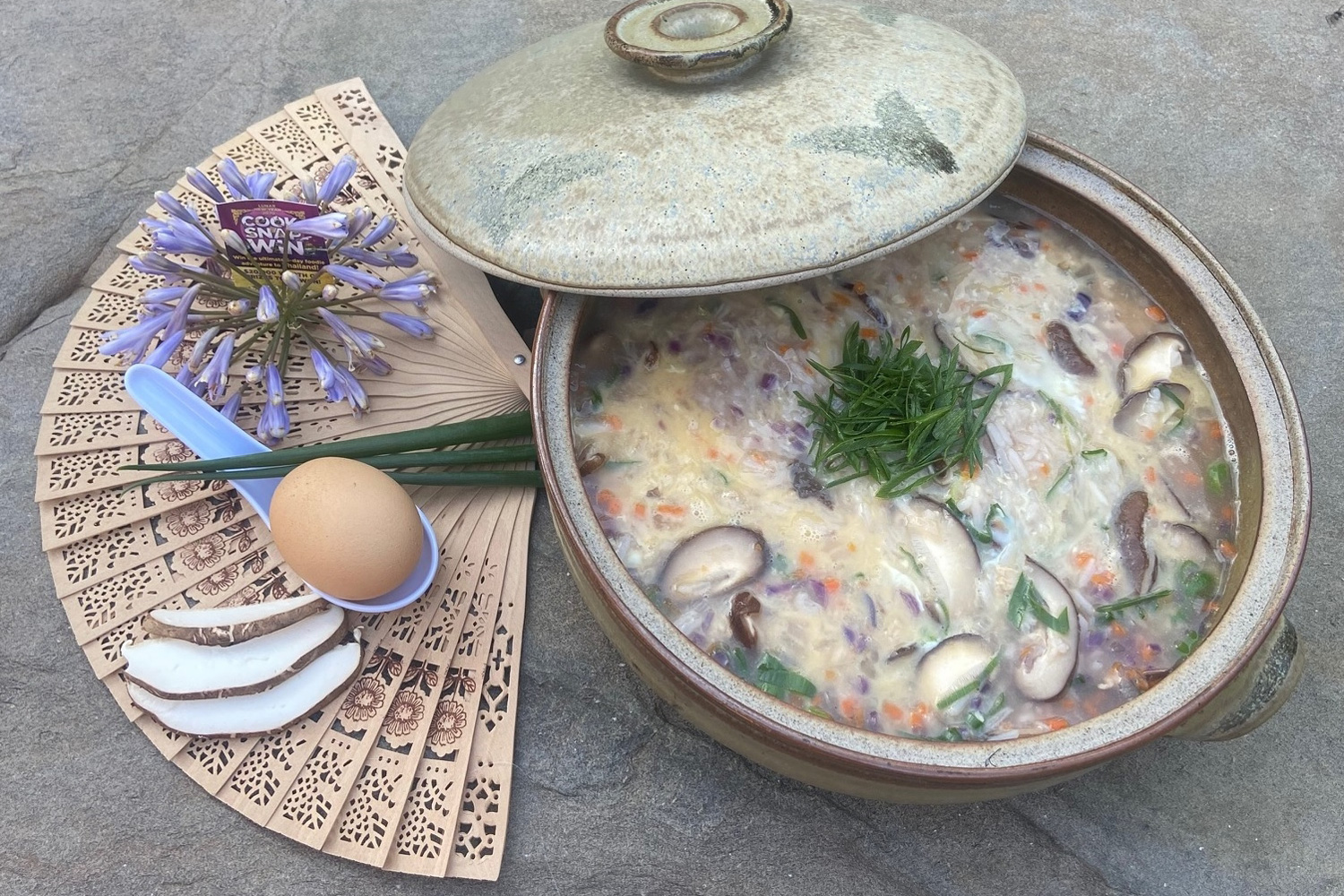
Low-Calorie Comfort Food
Despite its hearty flavor, Zosui is light in calories, making it ideal for those seeking comfort without heaviness. It embodies Japan’s mindful approach to balanced eating.
Gentle on Digestion
Because it’s easy to digest, Zosui is recommended for people with sensitive stomachs or those recovering from illness. It’s a reminder that true comfort food can also be health-conscious.
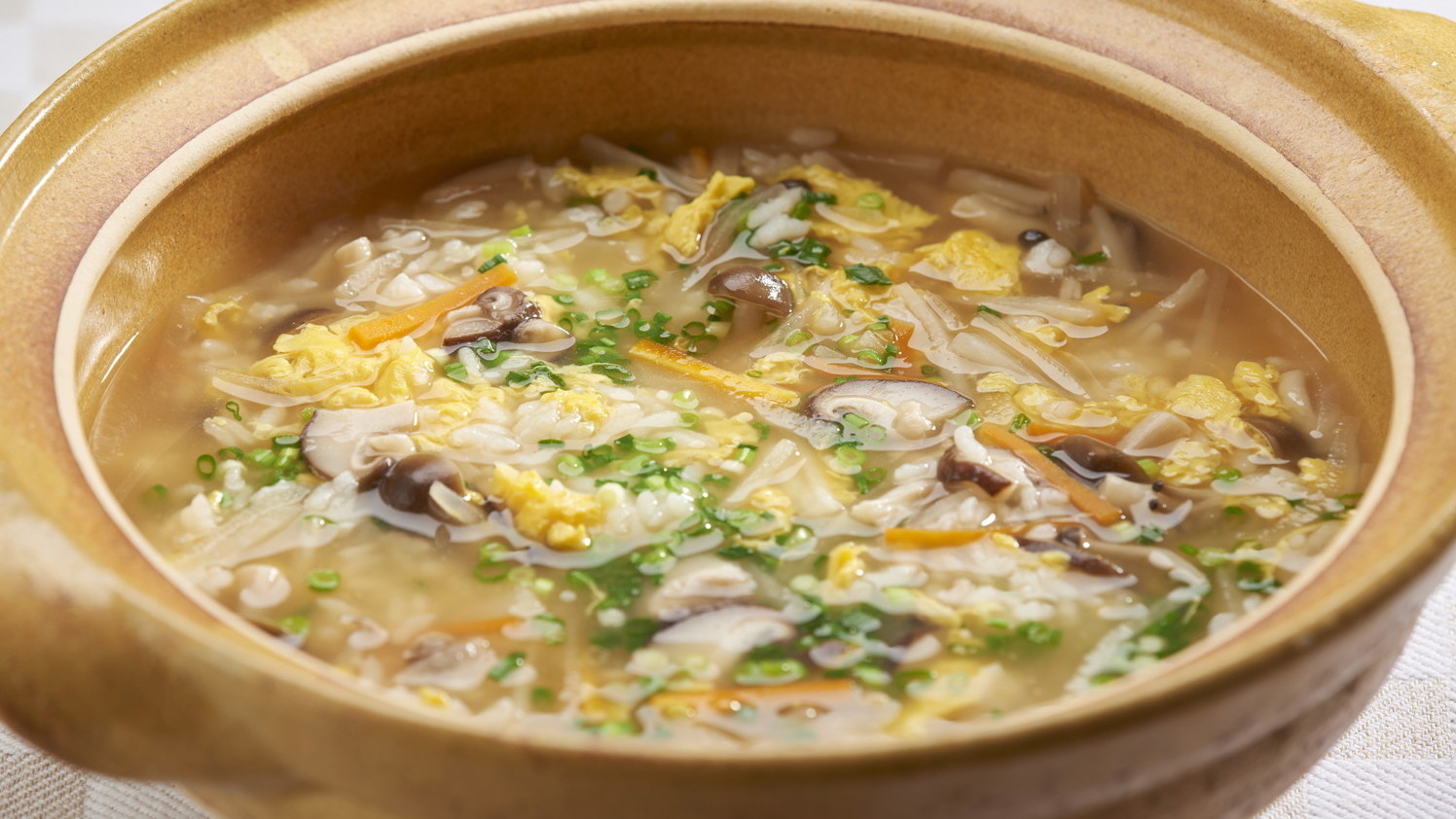
Where to Enjoy Authentic Zosui in Japan
Travelers can find authentic Zosui across Japan, from family-run eateries to high-end restaurants. Yoshida Hotel recommends experiencing it in local establishments that capture each region’s personality and tradition.
- Kyoto: Elegant vegetarian-style Zosui in serene tea houses.
- Osaka: Street-side eateries offering hearty seafood variations.
- Hokkaido: Coastal restaurants serving crab Zosui during winter.
- Tokyo: Modern cafes blending classic recipes with global influences.
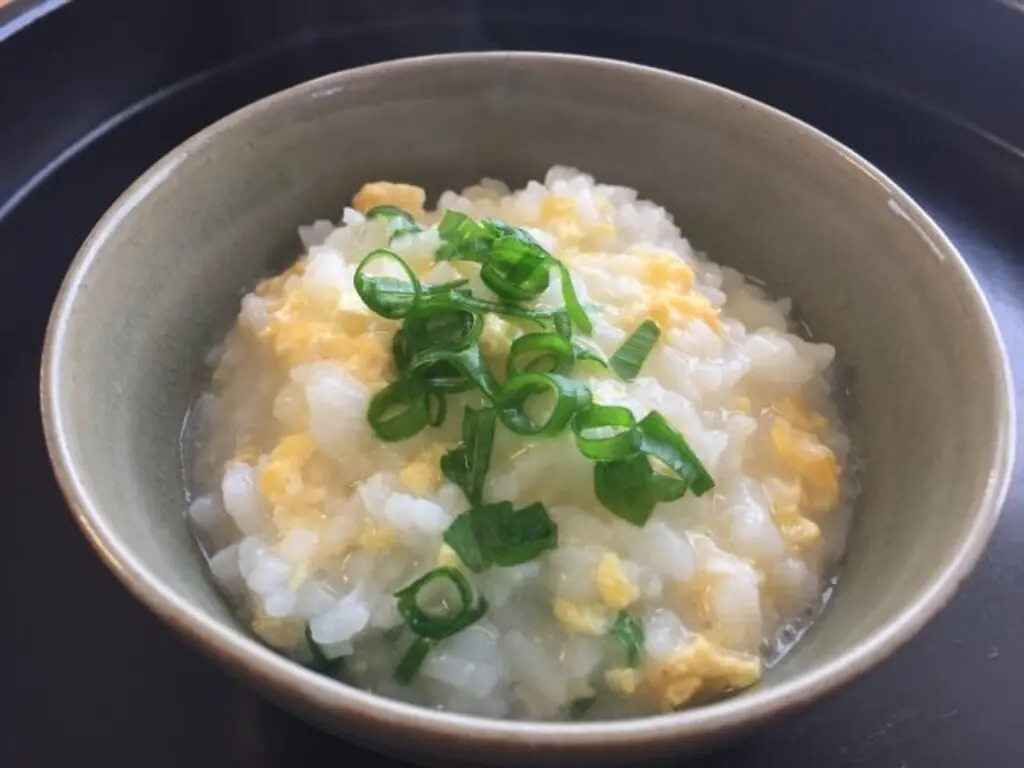
Experiencing Zosui (Rice Soup) with Yoshida Hotel – A Journey of Warmth and Culture
Yoshida Hotel invites travelers to rediscover Japan’s culinary heritage through Zosui (rice soup). Whether enjoyed at a traditional ryokan or a modern restaurant, the dish speaks of care, connection, and cultural depth. Through every bowl, diners experience Japan’s dedication to comfort, flavor, and authenticity.
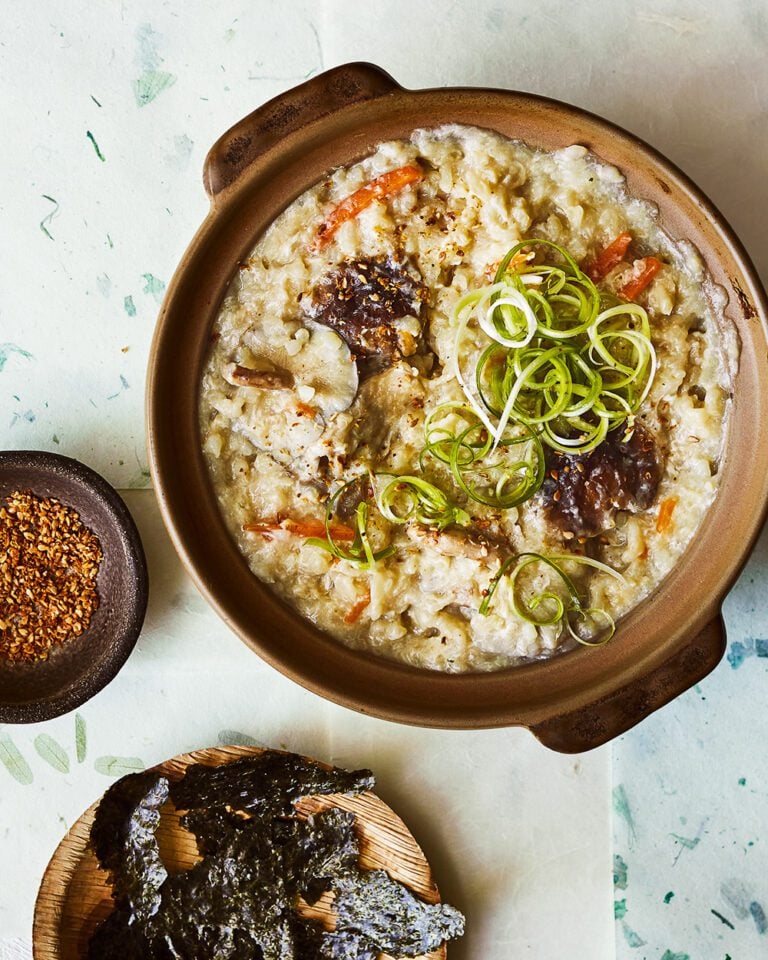
Conclusion
Zosui (rice soup) represents the heart of Japanese home cooking – a dish of warmth, simplicity, and love. Together with Yoshida Hotel, we’ve explored its origins, variations, and meaning in modern Japan. Each spoonful is a celebration of harmony between nature, nourishment, and culture. For travelers seeking to understand Japan’s culinary soul, Zosui offers a comforting path – one that begins with a humble bowl of rice and ends with a deep appreciation of life’s simple joys.
Details
Namistay chain hotel
- 61-63 Hoang Ke Viem, Bac My Phu, Ngu Hanh Son, Da Nang, Vietnam
- Hotline: 0905 432 992
- Lot 45 An Thuong 29, Bac My Phu, Ngu Hanh Son, Da Nang, Vietnam
- Hotline: 0977 455 546
- 42 An Thuong 26 Street, Bac My Phu, Ngu Hanh Son, Da Nang, Vietnam
- Hotline: 0965 442 842

